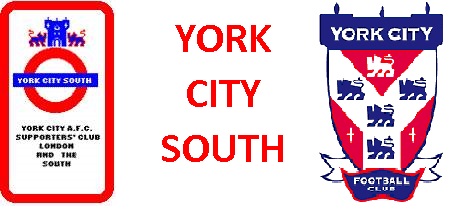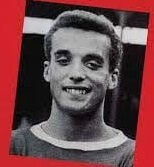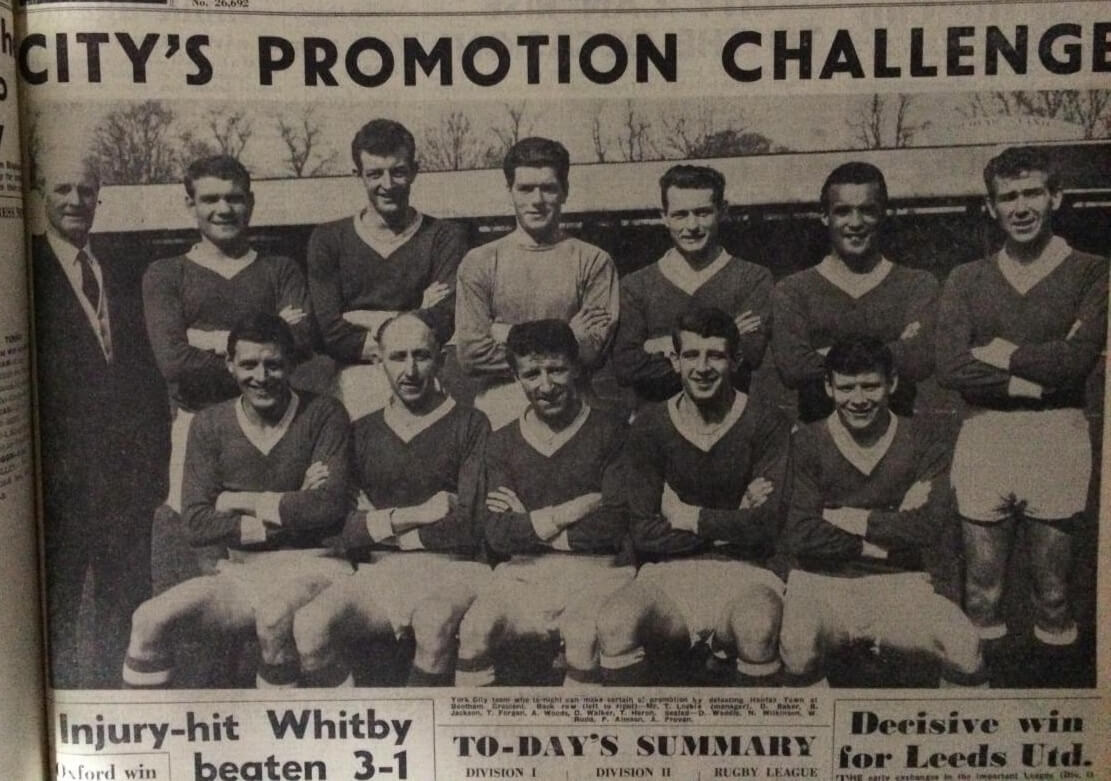

Dennis Walker
This page is largely based on an extract from "Football's Black Pioneers" by Bill Hern and David Gleave (published by Conker Editions, £16) and was reported in TOOAB on 31st October 2020. with further information taken from Manchester United Then & Now.
Dennis Walker was Manchester United's first ever black heritage player.
On 19th September 1981, 20-year-old Remi Moses became the second black footballer to play in the league for Manchester United in a 1-0 home win over Swansea. But Moses had been just two years old when United's first and only previous black player had debuted in 1963. A lot of people, including Viv Anderson when we interviewed him, think that Tony Whelan was United's black pioneer, but the club's current assistant academy director never made it into the first team. In fact, Tony regularly corrects people when they cite him as the first black player to pull on the famous red shirt, an honour which goes to Dennis Allen Walker.
Walker was born at 28 Queen Street, Northwich, Cheshire on 26 October 1944 to single mother Mary Walker. Mary was born in Limerick and was white. Until recently little was known about Walker's father, who isn't named on the birth certificate, though Walker always described himself as Iranian / Argentinian.
Thanks to Nadine Ali, the daughter of Walker and his fourth wife Paula, we learned that Walker's father was indeed Iranian, of African heritage. Just as African people were enslaved in the Caribbean and the United States, many were also captured and taken to the Persian Gulf, where enslavement was declared illegal as recently as 1929. It is possible that Walker's grandparents, or even his father, could have been born in Africa and forcibly taken to what is now Iran. Nadine's DNA confirms this African heritage.
The precise identity of Walker's father remains shrouded in mystery. Walker was told by his mother that his father had died at sea when he was a baby. Walker was born during the second world war, so it is feasible his father may have been a soldier. Another mystery in Walker's life is that he could speak fluent Farsi and Arabic, which one presumes he did not pick up in Northwich. Nadine also recalls that he used to correspond with and even visit family members in Iran. Clearly, his Iranian connection didn't end with the premature death of his father; but contact between the Walker family and relatives in Iran came to a halt before Walker's death.
Walker's footballing ability was spotted early and he was picked up by United at the age of 12, in his second year at secondary school, by Manchester Unitedís local scout who spotted Walker and recognised that the young kid had talent in abundance, he recommended him to his manager, Matt Busby. United had the best, and most coveted youth football system in English football and regardless of the city or town of their birth, every schoolboy dreamt of becoming a Busby Babe and following in the football boots of the legendary Duncan Edwards, Bobby Charlton and many others. Walker was recruited by United and aged only 15, he left school and signed for the club as a trainee in September 1960. His boyhood dream was fulfilled, he became a Busby Babe, the first and only black Busby Babe.
This means he was at the club at the time of the Munich air disaster in 1958 and became part of the second wave of 'Busby Babes', young players named after United's Scottish manager Matt Busby, a great believer in recruiting the best schoolboys and turning them into top-class players. Walker was the first and only black Busby Babe.
Walker was an outstanding talent at schoolboys level and was on the verge of playing for the England schoolboys Under-15 side before agreeing terms at Old Trafford. When Jimmy Murphy, assistant manager to Matt Busby, and the man in charge of Manchester Unitedís Youth Teams, knocked on the front door of the home of the parent / parents of a young boy who he wanted to join his set-up at Old Trafford, it was perhaps one of the most difficult things in the world to do and not invite Jimmy in. Murphy was Busbyís most trusted lieutenant, his Consigliere when it came to getting a deal done and acquire the signature of a promising young footballer. But more than this, Murphy was a genial Welshman, whose demeanour was so intoxicating, and whose words of comfort and wisdom were so reassuring, that it may have been bordering on a parent committing a sin to refuse him permission to look after their son. Jimmy never promised to take the place of either parent in their sonís life but what he did give them was his unequivocal guarantee that he would look after him like he was his own son. Busby knew that Murphy was the Patriarch of his Babes and both treated the young boys under their charge as men. Mary Walker, just like the parents of Edwards and Charlton had done in previous years, placed her trust in Manchester United, and in Jimmy in particular, to look after her son and help him become a man.
A right-sided midfielder or forward, Walker signed as a full-time professional in November 1961 but had to wait until the end of the 1962-63 season before making his first-team debut. On 20th May 1963, Busby gave Walker his first team debut and selected him in his team which lost 3-2 at the City Ground, Nottingham to Nottingham Forest in the English First Division Championship (scorers: Johnny Giles & David Herd). Amazingly, neither Charlton or Denis Law (Best was still a Youth Team player) played in the game which was not only Walkerís first for Manchester United, but also his only ever game for the club. Busby rested Charlton and played Walker in his position, making him the first black player to play in a competitive game for Manchester United. Walkerís debut was Manchester Unitedís final League game of the 1962-63 season, and five days later, Charlton and Law both played in Unitedís 3-1 win over Leicester City in the 1963 FA Cup final. Walker remained on the periphery of the first team and when the club embarked on a 1963-64 pre-season tour of Italy, he was not chosen by Busby for any of the matches. But then again, his competition was Charlton and Law and a Manchester United Legend awaiting, literally in the wings, the iconic, devilish, wizard of the dribble, silky, stylish, mesmeric, iconic, genius of world football, George Best. The 17-year old George Best eventually made his first team debut on 14 September 1963.
There is some evidence that Busby could be unintentionally insensitive towards Walker. In A Strange Kind of Glory, Eamon Dunphy wrote of the gambling that was endemic among the United players, and of money going missing in the changing room: "A meeting of staff was called to discuss the thieving. In passing 'The Boss' alluded to there being 'a n****r in the woodpile'. Walker one of the first black players to emerge in the professional game sat unperturbed at the offence".
United eventually released Walker alongside other young players including a winger by the name of Barry Fry. Unlike Walker, the future Birmingham City and Peterborough manager had yet to make a senior appearance. In April 1964, Walker left Old Trafford and moved to York City who finished third from bottom of the English Fourth Division and had to apply for re-election to the League, which was approved. On 13th June 1964, Walker married Patricia Cropper in the Parish Church of St Clement, Chorlton-cum-Hardy, and his former Manchester United teammate, David Sadler was his best man at his wedding.
His first season with City saw us gain promotion. After 169 appearances for York City he moved to Cambridge United in 1968 and played for the club in the Southern League and then in the Football League from 1968 until October 1972. In October 1972, he moved to Poole Town Football Club for £1,600, making 74 League appearances for the club and scoring 4 goals. Poole Town were relegated from the Southern Premier League to the Southern League Division 1 South at the end of the 1972-73 season, and at the start of the 1973-74 season, Walker was made player/manager. In July 1975, he accepted an offer of a football coaching role in South Africa.
He returned to the UK to become Operations Manager at the Arndale Shopping Centre in Manchester. He was on duty on 15th June 1996, when a telephone call came through claiming that a bomb had been planted in the Centre. The Troubles were in their 27th year in Northern Ireland and the Irish Republican Army (IRA) had carried out many bombing campaigns in England during this time. However, hoax calls about bombs being planted at key points in English cities were not uncommon at this time, and any decision to evacuate a major shopping complex or a financial institution would undoubtedly cause a great deal of disruption and financial loss. Thankfully, Walker decided he would go with the gut feeling he had following the telephone warning and supported the decision to evacuate the Arndale Shopping Centre which was packed with shoppers. Seconds after ensuring everyone was safe a 3,300-pound IRA bomb was detonated, hurling Walker across the road and into the window of Debenhams Department Store. Miraculously he was unhurt, and no one died in the aftermath of the explosion, mainly thanks to Walkerís quick decision making. Sadly, Walker suffered a massive stroke and lost the use of the right side of his body. This was difficult for Walker to endure as he was such a positive outgoing person who loved playing sports, particularly golf.
He never fully recovered from the stroke passed away on 11 August 2003, in Stepping Hill Hospital, Stockport aged 59. But Walkerís legacy lives on and thanks to him, the Manchester United team today is a diverse one. Walker paved the way for those players today to represent the club freely and without the prejudice players like Walker had to suffer and tolerate during the 1960s and 1970s in order to play the sport they loved. He was the first black player to play for Manchester United and the only black Busby Babe.
Walker had always been something of an unsung hero at Old Trafford but his position as Manchester United's first black player has at last been fully recognised and a pavement commemorating his place in United history as a youth-team graduate is set to be unveiled. Key in ensuring Walker got this recognition was Whelan, who helped trace the Walker family. Whelan has served the club from 1968 to date, now holding responsibility for the under-9 to under-16 player development programme.
Walker's daughter Nadine is too young to recall her father's playing days but she told us that she remembers him as a larger-than-life character. He loved all sports, was highly competitive and excelled in everything he attempted, particularly golf. The house was always full of trophies. Tragically Walker later suffered a massive stroke and lost the use of the right side of his body. This was difficult for a confident, outgoing man, but he faced things with his usual positivity. He was never to fully recover and died in Stepping Hill Hospital, Stockport, aged 59 on 11th August 2003.
The man:

